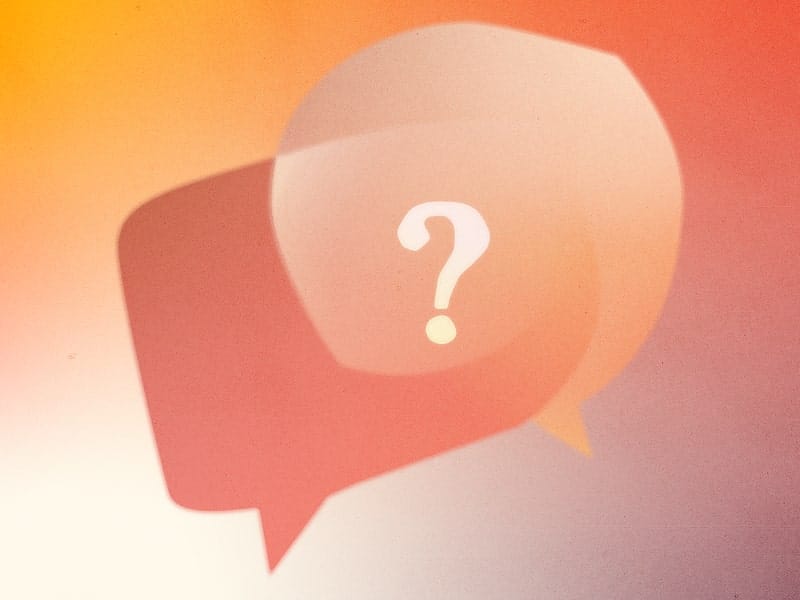What to Do if Someone Doesn’t Respond
Manage hurt emotions after unanswered communication with a friend or loved one.

Manage hurt emotions after unanswered communication with a friend or loved one.
Loneliness is common and universal. Feelings of loneliness are created by a combination of factors, including lack of social connections and broader, societal issues. And nothing is more frustrating (and sometimes hurtful) than an unanswered call or text. Reaching out is hard enough, without adding non-responsive loved ones into the mix.
In this article, we’ll explore the realities of why people don’t reach out and what to do when you’re feeling like no one is getting back to you.
Reaching out
There are many reasons people don’t reach out. And, often, the people who need contact the most are the ones least likely to seek it. Those with anxiety, depression and other mental health issues may have trouble seeking out others. Those who are experiencing financial or health difficulties may also have trouble reaching out, increasing their own feelings of isolation. And people in these scenarios might need you to do the heavy lifting of taking the first step.
People don’t reach out or respond to your messages for other reasons as well. A busy work life, a friend in town or child-rearing responsibilities are all reasons people don’t reach out. (Heck, I know I’ve forgotten to respond to a text just because I was in the middle of reading a particularly good chapter of a book!)
In a 2015 report, researchers examined 168 cases of hurt feelings. They determined all but two cases were caused by a person’s perception that others did not value their relationship. Researchers note the perceptions we have of our value to others are often inaccurate. We often misread our own interpersonal reactions, in the negative and positive.
What to do
If you are feeling down because a friend has not responded to your text or call, keep in mind the entirety of your relationship. If this is not part of an extended pattern of behavior, it is likely not a comment on your relationship.
Megan B. Bartley, founding director of The Mindfulness Center, says every relationship is about a “mutual exchange of energy.” Bartley adds, “The mutual exchange of energy between people over time … [may] shift and change when your time and energy are pulled in new directions or different directions.” Relationships are flexible and change as we age, grow and take on new responsibilities in life.
Rather than waiting by the phone, take a walk or engage in a mindfulness practice. Ongoing mindfulness practice may increase your overall resilience and prevent you from feeling this way in the future.
If you’re really overthinking, get out of the house. Seeing a stranger can even help. On his podcast, House Calls with Dr. Vivek Murthy, the Surgeon General of the United States, said, “Even our interactions with strangers have an impact [on loneliness].” By getting out and seeing other people—even ones you don’t know—you may mitigate your bad feelings.
If you have something particularly important or time-sensitive, however, feel free to give your friend a gentle nudge in the form of a text or phone call. It could be that they intended to respond and forgot to do it. A gentle reminder, once in a while, won’t go amiss.
What not to do
The worst thing to do in this scenario is to overthink. Bartley says, “Sensitivity … can be our superpower. If we don’t channel it appropriately, we can overthink things and take things too personally.”
Bartley says you should consider “the rainbow of options. What are all the other reasons why this person didn't text me or get back to me? Was there an emergency? Did they have something for work? Are they traveling? There could be so many different options.” Your brain may want to settle on a single self-focused reason why no one is getting back to you, but there are a wide range of possibilities as to why your friend or loved one hasn’t returned your call.
However, you shouldn’t stick with relationships that clearly aren’t working. If you never have a mutual exchange of energy, you might consider letting that relationship go.
Summary
Not having a friend or loved one get back to you in a timely manner can be frustrating and may lead to hurt feelings. But there are many reasons why people fail to get in touch.
— Keep your entire relationship in mind. If you have a good relationship, generally, this may just be a blip on the radar.
— Remember the reasons—there are so many reasons that people don’t get in touch and they rarely have to do with us.
— Get outside, meditate and get your mind off things. Don’t overthink and move on to another activity.